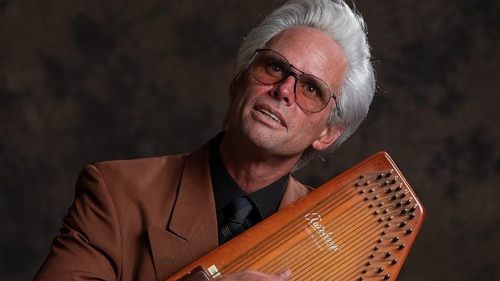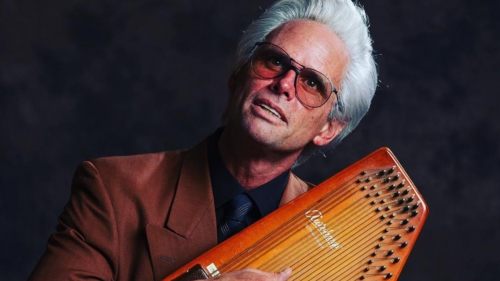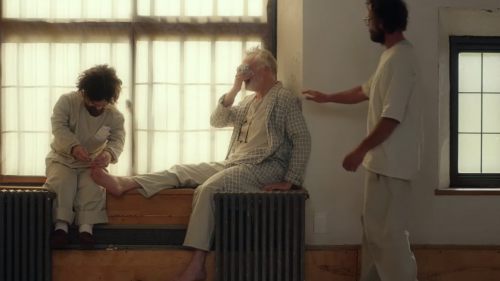Walton Goggins Talks TOMB RAIDER And Quentin Tarantino
Tomb Raider hits this week. Get your tickets here!
Whether he’s playing a scoundrel in sheriff’s clothing, a deranged Vice Principal, or a complex transgender prostitute, actor Walton Goggins always brings something extra to the material, and turns each and every role into a significant addition to the story. Known mainly for his likable baddies, Goggins’ latest turn in Tomb Raider is as an archeologist named Mathias Vogel, gone mad with years of isolation on a faraway island, hell bent on discovering an ancient tomb whose unearthing would undoubtedly change the world. Mathias had all but given up on ever finding the hidden treasure that would send him home, back to his loving family, and far away from the incessant lapping of water against the shoreline, but then, she appeared – Lara Croft.
After discovering a hidden artifact in her home which would hopefully solve the case of her father’s mysterious death, Croft ventures to this forbidden island, only to find a highly trained group of bandits waiting for her, ready and willing to snatch up any secrets she’s brought alongside. Now, it’s up to Croft to escape their clutches, find her father, and stop Mathias and his men from opening the tomb, lest they bring about the utter demise of all mankind.
To say that I was excited to meet and chat with Walton Goggins is an understatement. The man just has that thing about him – that sweetly sinister smile that makes you want to see where his character will wind up. Those dark and cryptic eyes which make you wonder what he’s been through. It all just makes you want to buy him a beer and hear all of his stories.
Goggins is a very busy man however, and deservedly so, but sadly, for me, I didn’t have time for that beer. I only had a few moments to speak with the man who has come to mean so much to so many, but I tried to make the best out of our little chat, which you can read below:
You seem to have an affinity for rough-around-the-edges antiheroes and likable baddies. How do you approach the role of the villain as an actor?
By not looking at him as a villain, really. That’s what it comes down to, just trying to look at his struggles and see the world from his point of view and try to honor that journey.
You’ve worked with Quentin Tarantino a couple of times now. He gets a lot of credit for his writing, and rightfully so, but I think an equally important strength for him as a filmmaker is the way he directs actors.
One hundred percent.
What did you learn about your craft through working with Tarantino?
First and foremost, no one can write a scene the way that Quentin Tarantino can, except for, and I think he would say this too, Elmore Leonard. But more importantly, his visual language, his visual way of telling a story is like, I don’t know, insert “X” invention here was that was exported all over the world, I mean, what contemporary filmmaker hasn’t been, on some level, influenced by Quentin Tarantino? You know? And so, I suppose the question isn’t, “What is it that you learned from Quentin Tarantino”, but “What haven’t you learned from Quentin Tarantino”? And I think most people that have had the invitation to work with him would say that.
Is there anything that you feel personally you gained from your experience with him?
Well, it’s so hard to kind of answer that question. I’m trying to think of a trite kind of pat answer to your question. I learned, and you’re reminded, because you’re in the presence of an icon, where you are in the lineage of storytelling and what -- the two scripts that I’ve worked on with Quentin -- what this means, where this comes from, what his influences are, because he had a real sense of place and environment that you’re in. I learned a love and a passion for storytelling, and I’m already a loving, passionate person about this craft, but he makes me look like a negative character in a Woody Allen movie or something. His enthusiasm is infectious and I learned what it takes, how his mind works, how he visualizes once he has moved from the script to actually shooting. He has expanded my definition of what is possible to photograph in a scene. The way he goes, it’s precise, and everything has a purpose, and so it’s that kind of attention to detail that is pure Quentin.
What drew you to the project of Tomb Raider, and how do you feel about this adaptation of Lara Croft, which depicts her as more of a smart girl than a superhero?
Well I think we wanted to do something different, not for the sake of doing something different, but for the sake of really telling the story, and what drew me to it was what I read on the page and the possibility that I could really add something and help our director Roar achieve what he wanted to achieve, say what he wanted to say, along with what Alicia wanted to do with Lara Croft. I felt like I could help her tell the story of this woman coming into her power and do it in a way that was very truthful, not to a character from a video game, but to a person that really existed in the world, you know? And they allowed for that and they wanted that, so that’s why I’m here.
In my opinion, part of what makes your portrayal of Mathias in Tomb Raider, and honestly, all of your depictions of rogues and antiheroes throughout the years so relatable is the subtlety in your performance. You say a lot without saying very much at the same time. Your bad guys come off not just static and angry, but dynamic, lost, and even a little sad sometimes. How do you display this visual dialogue as the antagonist in the picture?
Well I’m just a lost and sad person. No, I appreciate that. I mean look, I’ve had an incredible life, and I’ve gone down a lot of roads in my life. I’ve had great happiness and I’ve had great sadness and I’ve endeavored to the life that reflects both internally and externally the scars that I’ve accumulated along the way, and I am attracted to difficult men, and difficult women, and difficult people, and what I mean by that are people that are not afraid to live a life that explores the boundaries of their personality, and I have been rewarded greatly by experiencing mine. I am now at this point in my life where I am just trying to funnel all of these life experiences, and continually grow them so I can raise an incredible seven-year-old boy.



